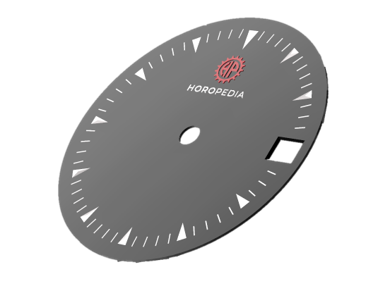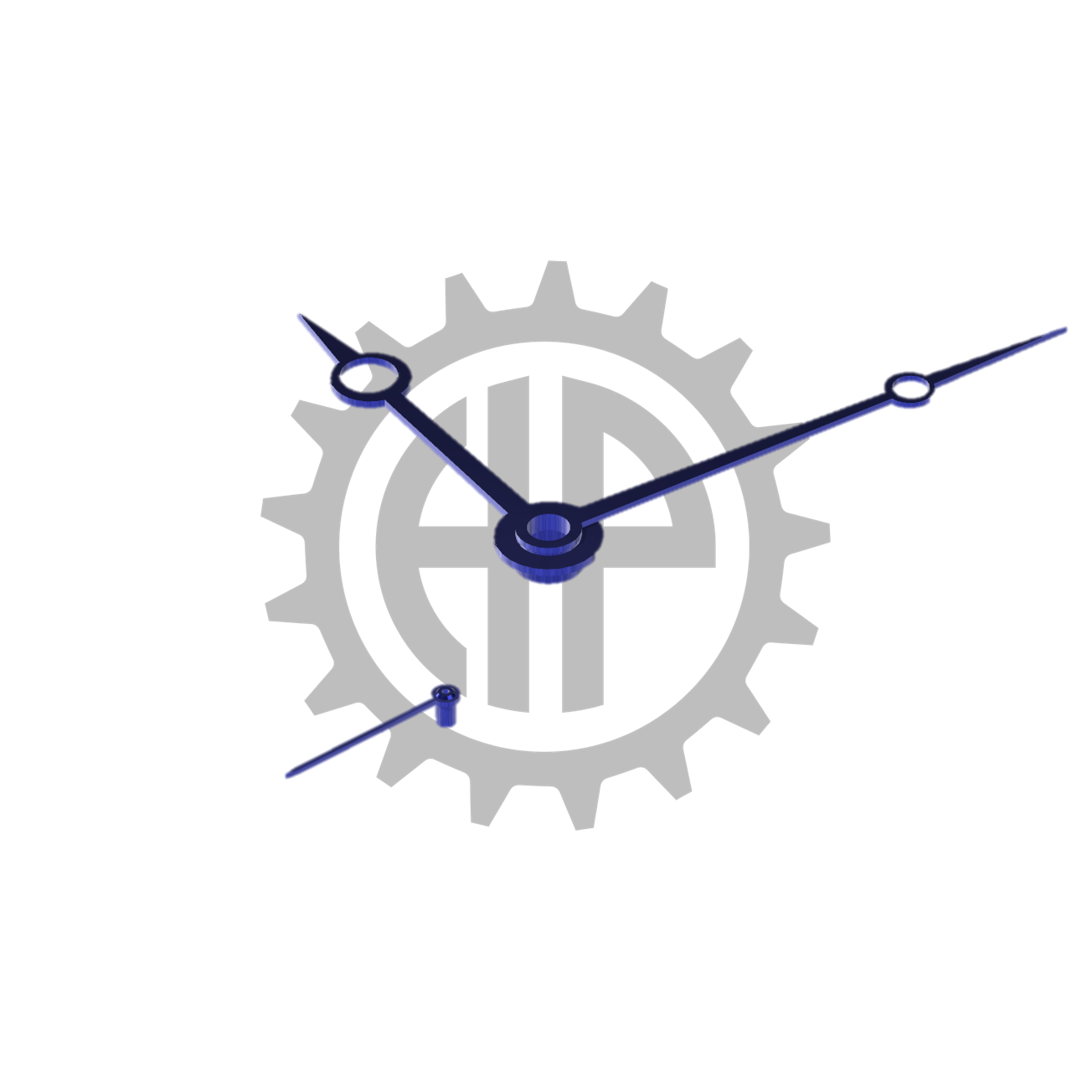LE CADRAN & LES AFFICHAGES
Le cadran est une plaque qui occupe la totalité de la surface du mouvement ou une partie de celle-ci. Il est l’élément fixe de l’affichage.
Outre la lecture de l’heure, le cadran peut servir de support pour renseigner tout type d’information (date, réserve de marche, second fuseau horaire etc.). C’est l’élément le plus visible et le plus regardé d’une montre, raison pour laquelle on parle souvent du visage de la montre.
Protégé par la boite et la glace, il peut être façonné dans une infinité de matières (métal, pierre, matières synthétiques, bois, saphir etc.) ou de combinaisons de matières. Il existe cependant une multitude d’autres moyens d’afficher l’heure ou d’autres indications (rouleaux, disques, sphères, etc.).

LE CADRAN
Le cadran est une plaque solidaire de la platine. Les différentes aiguilles évoluent au-dessus de sa surface en parcourant leur graduation dédiée (affichage analogique). Dans certains cas, une fenêtre est ouverte au travers du cadran (guichet), et laisse apparaitre une valeur numérique imprimée sur l’indicateur (généralement un disque) qui se trouve lui-même sous le cadran et est directement animé par le mouvement (affichage digital). Si l’affichage analogique est généralement utilisé pour afficher l’heure. La date est communément indiquée par un affichage digital (disque – guichet).

LE GUICHET
Cette fenêtre ouverte à la surface du cadran permet de lire numériquement la valeur de l’information dispensée. Heures, minutes, date, second fuseau horaire, la quasi totalité des informations d’une montre peut être affichée de cette manière. Généralement de forme rectangulaire, le guichet peut s’ouvrir de différentes formes selon le type d’information (le « croissant » d’une phase de lune, le secteur des jours de la semaine etc.).

LES AIGUILLES
L’aiguille est un pointeur dont l’extrémité parcoure circulairement (p. ex. l’aiguille des minutes), linéairement ou aléatoirement (p. ex. l’aiguille d’indicateur de réserve de marche) la graduation qui lui est dédiée et qui est, la plupart du temps, imprimée à la surface du cadran. Éléments visibles par excellence, les aiguilles peuvent être réalisées dans divers matériaux et présenter une variété de formes quasi infinie.

LES INDEXES
L’index est un repère, un élément non chiffré d’une graduation. Par exemple, de nombreux cadrans n’affichent pas la valeur numérique de l’heure (chiffres de 1 à 12), mais simplement douze repères distincts (les indexes). Un index peut être imprimé (décalqué) ou apparaitre sous forme d’applique.

LES APPLIQUES
L’applique est un élément indicatif ou décoratif reporté à la surface du cadran. Ca peut être un chiffre, un index, le cadre d’un guichet ou la marque du fabriquant pour ne citer que quelques exemples. L’applique se fixe au cadran par des pieds chassés dans le cadran ou est simplement collée à sa surface. Dans la majeure partie des cas, l’applique est métallique. Elle peut cependant être réalisée dans toutes les matières ou se présenter sous forme de chaton serti.

LA TAMPOGRAPHIE (OU DÉCALQUE)
La tampographie est un procédé d’impression indirecte (par transfert). Il permet d’imprimer toutes les informations d’un cadran (marque, chiffres, graduations, éléments décoratifs etc.) mais aussi de disques, de réhauts et même de glaces. Une matrice en acier est gravée chimiquement avec les indications à imprimer. L’encre est ensuite déposée au fond de la gravure de la matrice. Le tampon se pose ensuite sur cette empreinte et peut ainsi transférer l’encre de la matrice sur la surface du cadran.
DEVENEZ CONTRIBUTEUR
HOROPEDIA est une plateforme de connaissance participative et nous invitons tous ceux qui souhaitent apporter leur contribution à cette aventure du partage du savoir horloger à nous rejoindre.
